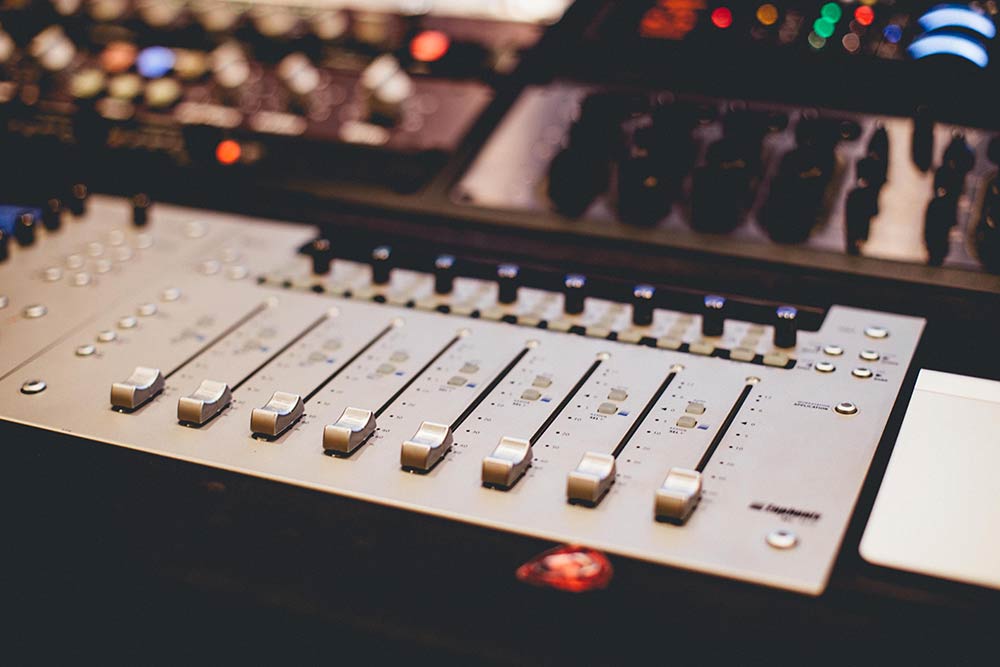Introduction: What is Audio Engineering?
Audio engineering is the professional practice of combining sounds to create the desired sound. It involves using audio equipment, such as microphones and speakers, to record and playback sound. The term can also refer to producing music, speech, or other sounds using audio equipment and editing techniques.
An audio engineer works closely with music producers, performers, composers, and songwriters to create recordings that are as good as they can be. They do this by deciding which songs will be recorded and what instruments will be used in each piece. They also decide how these instruments should sound concerning each other. The engineer might also suggest how the vocals should be sung or what effects might work well with certain songs or instruments.
The job requires creativity and a good ear for music so the engineer can know what sounds best together.
What Do Audio Engineers Do All Day?
Audio engineers are responsible for the sound recording and mixing of different kinds of content. They work with music, film, theater, and other media. They have to be on top of their game because there is no room for error in audio engineering. Audio engineers are often required to work long hours to get a project done on time. Audio engineers usually have to work with many different personalities. Audio engineers are responsible for the sound of the show and capturing the audience so that they can’t help but be drawn in. This is why they work long hours and must be able to see themselves being creative on stage or in front of a camera while performing their other duties. Audio engineers need to be creative and well-versed in sound and all aspects of theater.
How Does Recording Work?
Recording studios are expensive, but they provide the best quality of sound. Recording equipment can also be costly, but it is not necessary to have top-of-the-line equipment to get high-quality recordings. Registering equipment is required for any recording studio because it helps create the perfect sound for an artist’s voice. The most common recording equipment is a microphone and a computer with audio software. It’s important to know that you don’t need high-end gear to get great results. ; the most critical factor is being able to use it. Some professional musicians and recording artists rely on music theory. Music theorists often specialize in composing or playing a specific genre of music, such as classical music or jazz. Still, they can involve more abstract concepts such as composition or performance practice. Some primary fields that these professionals often work within include formal analysis, historical performance practice, theoretical composition, and ethnomusicology. Music theory may also be applied to others.
Types of Recording Techniques Used by Audio Engineers
This section will provide a list of the recording techniques used by audio engineers and their equipment. There are four main types of recording techniques: -Live recordings: The sound is captured as it happens in real-time. -Studio recordings: These are usually made in a studio environment with an engineer and can be done live or in batches. -Field recordings: These are sounds that have been recorded outside of the studio, typically on location. -Voiceovers: Voiceover artists record voiceovers for commercials, documentaries, and radio shows. Studio recordings are done with engineers and typically in batches at a recording studio. There are two types of these recordings: Edited live and Recorded live. Editing life is when the engineer takes an edited version of what has been recorded and creates a final piece, whereas recorded live is when no edits are made to what has been recorded. An example of field recordings would be when an audio engineer goes out on location to record sounds captured outside the studio. Voiceovers
What’s the Difference Between Mixing and Mastering?
Mixing combines a song’s elements to get a cohesive and balanced sound. Mastering is balancing, compressing, leveling, and optimizing the music for different playback systems. The difference between mixing and mastering is that mastering ensures that your song sounds good on other playback systems. This means it needs to be balanced, compressed, leveled, and optimized for various speakers or headphones. Mixing is about getting all the individual elements together to sound cohesive and balanced in one system. In the past, mastering was often a post-production step. It was done in a separate room from the mixing stage and involved specific hardware for equalization and loudness maximization. The term “mastering engineer” was traditionally more common than “mixing engineer,” though today, the words are used interchangeably. Mastering engineers mix, edit, or produce audio content for film, radio, television broadcasting, streaming media, and other formats. They may also record their material.
Conclusion on How to Become an Audio Engineer
Becoming an audio engineer is not a walk in the park. It takes time, patience, and hard work to get there. But it is worth the effort since it pays well and offers job stability. If you are looking to become an audio engineer, then you should first identify your skills and strengths. It would help if you also learned about the various engineering fields before you decide on one. Once you have decided on your specialization, start working towards that goal by acquiring the necessary skills and knowledge. Becoming an audio engineer is not a walk in the park. It takes time, patience, and hard work to get there. But it is worth the effort since it pays well and offers job stability. If you are looking to become an audio engineer, then you should first identify your skills and strengths. It would help if you also learned about the various engineering fields before you decide on one. Once you have decided on your specialization, start working towards that goal by acquiring the necessary.



